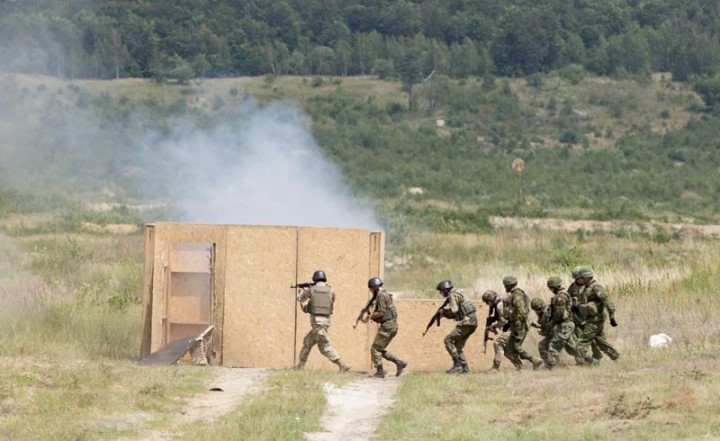OTTAWA — Jill Sinclair has been wracked by a combination of anguish, sickness and anger as well as extraordinary pride as she has watched Ukrainians stand fast in the face of Russia’s invasion of their homeland. One thing she hasn’t felt, however, is surprise.
“Whenever I see how surprised people are about what the Ukrainian military is doing now, and what Ukraine is doing now as a people, a nation, a government, I’m not,” Sinclair says. “I say: ‘If you’d had your eyes open.’”
A former Canadian diplomat, Sinclair is Canada’s representative on a high-level advisory panel created by the Ukrainian government in 2016 to help the country reform its post-Soviet military from the top down.
That has meant that while Canadian soldiers trained Ukrainian counterparts in the field on how to move and fight, Sinclair was helping the government in Kyiv set up the structures and laws needed to field, sustain and control a modern military force.
“They had this massive reform agenda, which was everything from command and control to procurement to human resources management to how they do the promotion system,” she says in an interview. “They were having to overcome old Soviet-legacy systems.”
Such reforms are often foisted on countries in the developing world and elsewhere as a condition for receiving foreign aid from Western nations. Those requirements are often accompanied by advisory or oversight bodies staffed by foreigners.
“This is a board that was established by the Ukrainians,” says Sinclair, who is the only civilian on the six-member panel that also includes senior military officers from the U.S., Britain, Germany, Poland and Lithuania. “And I think that’s kind of the magic of it.”
The result is that the Defence Reform Advisory Board has survived through several changes in Ukraine’s government, including four different defence ministers over the past six years, all of whom have continued to consult the panel.
“They’ve all used the DRAB a lot,” Sinclair says. “There’s never been: ‘Oh my goodness, I wonder if they’ll decide that they don’t actually want to continue down this path any longer, and that they don’t need outside advice.’”
Many have attributed the push to modernize Ukraine’s military to the threat posed by Russia after Moscow seized the Crimea peninsula in 2014 and started supporting pro-Russian separatist forces in the eastern Donbas region.
Sinclair instead traces the impetus to the Revolution of Dignity, when millions of Ukrainians rose up in 2014 to oust the pro-Russian government in Kyiv, effectively breaking from Moscow’s control and turning Ukraine toward the rest of Europe.
The sentiments that drove the revolution have continued to propel those in power to work on the reforms needed to truly integrate Ukraine into the broader European community and ensure it doesn’t fall back under Russia’s sway, Sinclair says.
That has meant changes to not only the Ukrainian military, but the whole government. Sinclair specifically notes the work that was needed to obtain visa-free travel with the European Union, which included massive changes to Ukraine’s border agency.
“Anybody who’s been working with Ukraine over the last number of years knows they weren’t doing reform because they were being told to,” she says. “They were doing reform because they wanted to be a stronger, better, more resilient democracy.”
Such change has not been easy, and Sinclair says there have been setbacks and challenges amid efforts to adopt legislation and standards for military education and procurement, and civilian control over the Ukrainian armed forces.
“This whole idea that you could have certified military medics did not exist when the DRAB started,” she says. “I remember meeting and working with the minister of health in Ukraine because there were legislative changes needed first.”
The DRAB has continued to provide advice to the Ukrainian government and military officials even after Russia’s invasion, which Sinclair believes will be a catalyst to even faster reforms as Kyiv seeks to move farther away from Moscow.
While the war is far from over, with no guarantee when or how it will end, Sinclair sees some looming challenges that will need to be addressed. Those include how to properly demobilize back to a peacetime footing, and what to do about Ukrainian veterans.
“How do you deal with thousands and thousands of armed young men, mostly but not exclusively, after the war where they have won battles and hopefully won the war?” she says. “That is going to be a challenge.”
This report by The Canadian Press was first published May 13, 2022.
Lee Berthiaume, The Canadian Press
